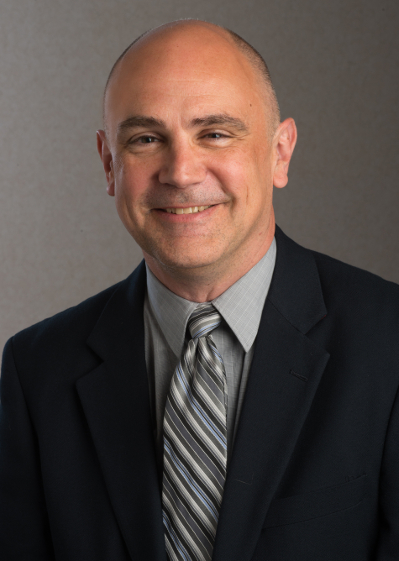
Since coming to the medical school in 2014, David Riddle, PhD, has served as a professor in the Department of Biomedical Sciences and taken on leadership roles as the department’s vice chair and chair of the Medical Student Performance Committee (MSPC).
Now, Dr. Riddle has been named the new assistant dean for Academic Success at WMed, a role in which he will be charged with overseeing academic advising, monitoring student progress through the MD curriculum, oversight of student remediation processes, and analysis and reporting of class performance, among other duties.
Dr. Riddle officially began his new role on Monday, July 9, 2018. With the move, Dr. Riddle is relinquishing his duties as vice chair of the Department of Biomedical Sciences and chair of the MSPC while continuing with some teaching responsibilities. He will report to Michael Busha, MD, MBA, associate dean for Educational Affairs.
“I think one of the things that really excites me about this new role is that it offers the opportunity to focus more intentionally on the success of all our students,” Dr. Riddle said. “I see this role as helping students recognize and address academic challenges as they occur, and also identifying and supporting changes in the curriculum and the institution to optimize the success of every student.”
Dr. Riddle enters his new role as an assistant dean backed by numerous years of experience as an educator and researcher, as well as extensive knowledge of student performance and curriculum development.
Prior to coming to WMed in 2014, Dr. Riddle taught and directed a research laboratory for 18 years in the Department of Neurobiology and Anatomy at Wake Forest University School of Medicine. While at Wake Forest, Dr. Riddle served on and chaired several committees focused on medical student performance and professionalism, admissions and undergraduate medical education, among other things.
Dr. Riddle is a graduate of the University of North Carolina where he earned a bachelor’s degree in zoology and the University of Michigan where he earned a PhD in neurosciences. Later, Dr. Riddle completed postdoctoral fellowships at Duke University Medical Center.
Dr. Riddle said a portion of his duties as the new assistant dean for Academic Success will focus heavily on the longitudinal assessment and supporting of students as they progress through the medical school curriculum. Additionally, he said he will play a key role in analyzing outcome data as MD students graduate from WMed and begin residency training. That data, Dr. Riddle said, will include student performance on the National Board of Medical Examiners (NBME) examinations, including Step 1 and 2 of the United States Medical License Examination (USMLE), and feedback on graduates’ performance from residency program directors.
“Now, as we start to graduate students each year, we have metrics that we can evaluate and we will use those data for ongoing evaluation of our curriculum with a focus on continuous quality improvement,” Dr. Riddle said. “That information will prove beneficial to the institution as a whole.”
Dr. Riddle said he believes the creation of his new role by medical school leaders “speaks to the institution being student focused and flexible, and adaptive to what students need.”
